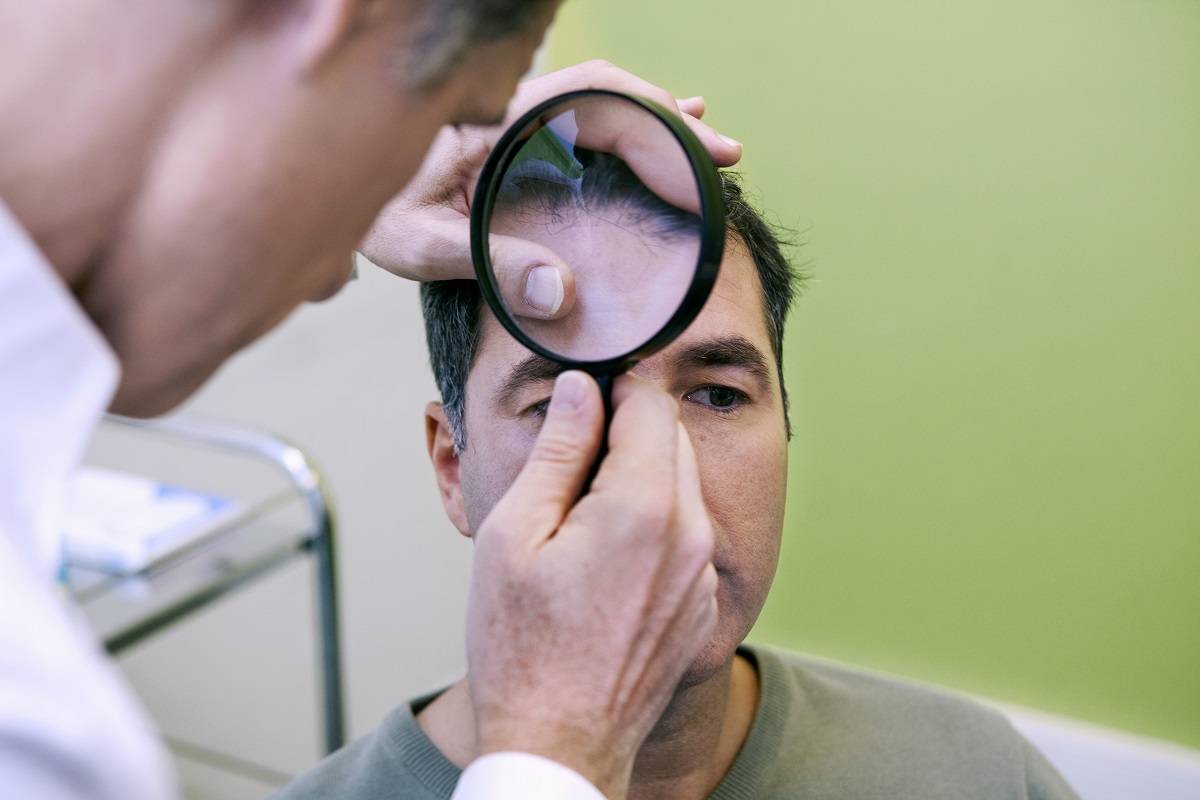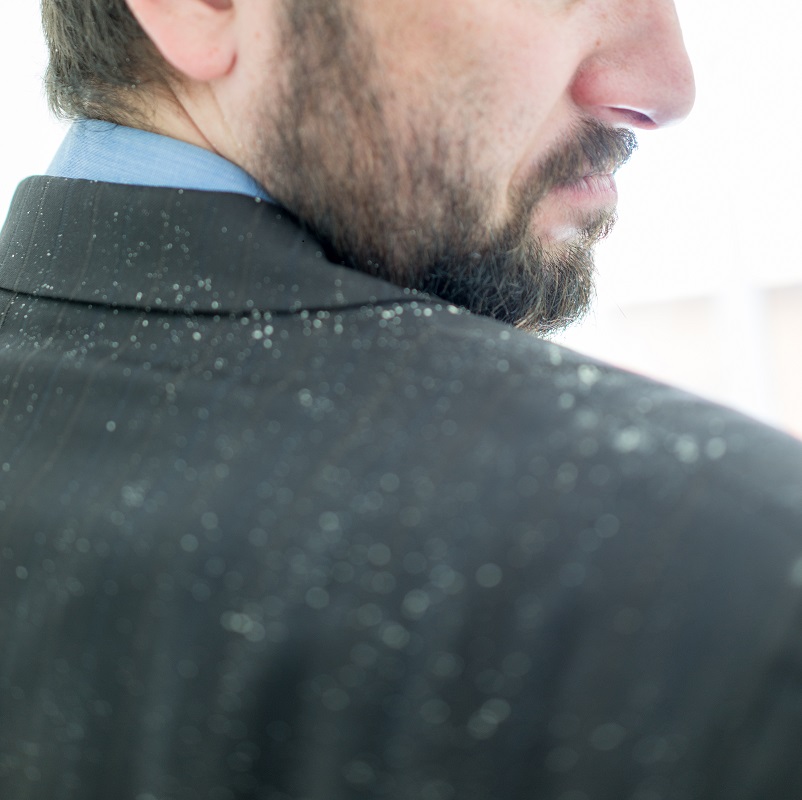Do you know your dandruff type? If you’re unsure, don’t worry. Many people suffer from some form of dandruff, but not everyone knows the different types of dandruff or how to treat them properly. This guide will help you identify your dandruff type and provide tips for treatment. You can get rid of those pesky flakes and have a healthy, flake-free scalp!
Keep on reading to get to know all dandruff types and the ways to deal with them.
Types of Dandruff: What Do You Have?

Dandruff is a common scalp condition that can cause discomfort, embarrassment, and even hair loss. It causes flakes, itchiness, and irritation. While it may seem like a single issue, there are several different dandruff types, each with unique causes.
Dry Skin-Related Dandruff
Dry skin is the main cause of the most common type of dandruff. When the scalp doesn’t produce enough moisture or oil to keep it hydrated, the skin becomes dry and flaky. This type of dandruff usually isn’t accompanied by other symptoms like itchiness or redness. It typically goes away on its own but may require medicated shampoos for more severe cases.
Oily Scalp-Related Dandruff
Oily scalp dandruff, also known as wet dandruff, is caused by an overproduction of sebum (the oil naturally produced by the scalp). The excess sebum mixes with dead skin cells and creates a greasy, waxy buildup that causes flakes. This type of dandruff can be itchy and typically requires medicated shampoos to treat.
Fungal-Related Dandruff
Dandruff fungus is caused by a fungal infection on the scalp. It’s often accompanied by other symptoms like excessive itchiness and redness. Medicated shampoos may help reduce symptoms but prescription antifungals may be needed for more severe cases.
Allergic Contact Dermatitis-Related Dandruff
Allergic contact dermatitis is an allergic reaction to a specific product or ingredient, and it can cause flaking, itching, and redness on the scalp, similar to dandruff. You should avoid the allergen and use shampoos with anti-inflammatory ingredients.
Psoriasis-Related Dandruff
This condition can cause patches of scaly skin. These patches can vary in size and severity but usually cause itchy flakes that look like dandruff. Treatments include topical steroids, light therapy, and medicated shampoos.
Seborrheic Dermatitis-Related Dandruff
This condition can cause an itchy, red, scaly rash on your scalp. It usually looks like dandruff and can be treated with medicated shampoos and topical steroids. Antifungal treatments may also help a case of seborrheic dermatitis if the underlying cause is fungal.
Diagnosis
Different dandruff types require different diagnosis processes. A doctor or dermatologist may use tools such as a magnifying glass and a scalp biopsy to diagnose the type of dandruff. For oily dandruff, they will look for sebum overproduction from the oil glands in the scalp. For dry dandruff, they will check for scaling and flaking caused by а lack of moisture in the skin.
If there is evidence of an infection or fungus, such as Malassezia furfur, then further tests may be required. Finally, it’s important to rule out other possible causes, like psoriasis and eczema, before arriving at a diagnosis. Depending on the situation, blood tests or a biopsy may be necessary. By correctly diagnosing the type of dandruff, the doctor can give an effective treatment plan to help eliminate it.
Natural Remedies for Dandruff

Dandruff can be a very pesky problem, but luckily some natural remedies may help tackle it. Different types of dandruff have unrelated causes, so they require separate approaches.
Dry Skin-Related Dandruff
If your dandruff is caused by dry skin, the best option is to use a gentle moisturizing shampoo regularly and avoid products with harsh chemicals or fragrances that could irritate your scalp further. You can also mix essential oils with your regular shampoo for additional benefits. Another thing you might want to consider is using a humidifier in your home during the cold, dry months of winter.
Oily Scalp-Related Dandruff
The best way to treat this type of dandruff is with a medicated shampoo specifically designed for oily scalps. Additionally, washing your hair with soap nut powder or apple cider vinegar once a week can help normalize the natural pH level of your scalp, which in turn will reduce dandruff.
Fungal-Related Dandruff
If you suspect that your dandruff is caused by a fungal infection such as Malassezia, then it’s best to use an antifungal shampoo weekly until the problem is under control. Alternatively, rub a few drops of tea tree oil on your scalp and leave it overnight. This oil has antifungal properties that may reduce fungal infection and prevent dandruff from returning.
Allergic Contact Dermatitis-Related Dandruff
To treat this type of dandruff, it’s important to identify and avoid the allergen causing the reaction. You should also try using hypoallergenic shampoos. Natural remedies include chamomile tea, aloe vera gel, and coconut oil.
Psoriasis-Related Dandruff
The best way to treat this type of dandruff is with a medicated shampoo specifically designed for psoriasis. Additionally, topical corticosteroids, vitamin A derivatives, and coal tar preparations can help reduce the itching and scaling associated with psoriatic dandruff. Also, Epsom salt and tea tree oil can help you with psoriasis-related dandruff.
Seborrheic Dermatitis-Related Dandruff
Besides a medicated shampoo, you should also try using natural remedies such as aloe vera or apple cider vinegar to help reduce the flaking and itching caused by seborrheic dermatitis.
How to Prevent Your Dandruff From Coming Back?

A dry scalp could be averted with regular hydration, such as drinking more water or using moisturizing hair masks. For oily scalp dandruff, use a shampoo that contains selenium sulfide to help reduce oil production. To prevent fungal-related dandruff from coming back, you should keep your scalp dry by avoiding excessive sweating and ensuring that you dry your hair thoroughly after washing.
To stop allergic contact dermatitis-related dandruff, use a gentle, hypoallergenic shampoo that does not contain harsh chemicals or fragrances. Check products’ ingredients and avoid those containing parabens or sulfates. For psoriasis-related dandruff, you should consult your doctor about prescription treatments available for this type of condition. Seborrheic dermatitis is the most common type, and it can be prevented by using a shampoo containing ketoconazole, salicylic acid, or zinc pyrithione twice weekly.
Other things you can do to prevent dandruff from coming back are the following:
- Keep your scalp clean by washing your hair routinely
- Manage stress and practice self-care activities
- Eat a healthy diet to ensure your skin is nourished and moisturized
If the issue persists, consult with your doctor or a dermatologist for proper diagnosis and treatment.
When to See Your Doctor?
If you suspect that your dandruff is getting worse or not responding to the treatments, it is crucial to see a doctor. They will conduct tests to diagnose the type of dandruff and recommend more effective treatments.
Different dandruff types, such as seborrheic dermatitis and scalp psoriasis, can have similar symptoms but require specific treatment plans to improve. Your doctor will likely consider your medical history, lifestyle, and the medications you are taking before prescribing any kind of treatment plan. Additionally, they may also prescribe topical creams or even antibiotics if needed.
Conclusion
Learning your dandruff type is the key to treating and managing it. Different types of dandruff are caused by various underlying issues, so it’s essential to identify which one you have to properly treat and manage it. By determining what’s causing your scalp irritation, you can begin addressing the root of the problem and start on a path toward healthier hair.
So if you think you may be suffering from any type of dandruff, make sure to consult with your doctor or dermatologist for help. With the right knowledge and treatment plan, you can look forward to living free of dandruff symptoms and having beautiful, healthy hair all year round!




